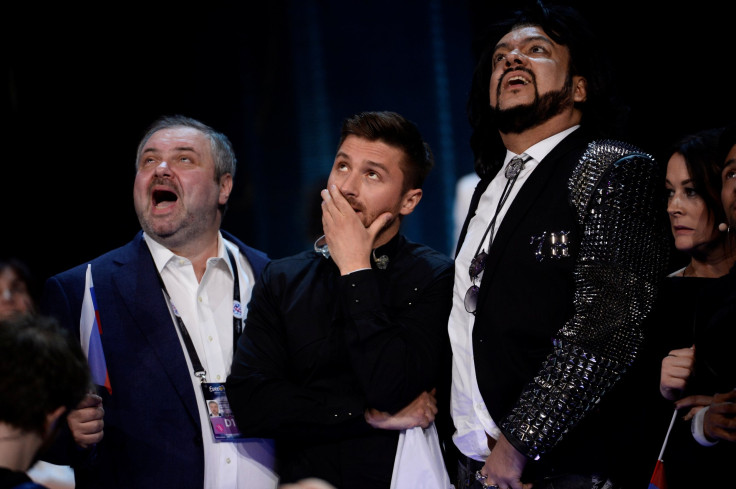2016 Eurovision Song Contest: Russians protest results; claim Ukraine singer broke rules

Ukranian singer Jamala has only been celebrating for a day after taking home the prize in the 2016 Eurovision Song Contest, but contentions over her win are already flooding in.
Last weekend, Crimean Tatar singer Susana Jamaladinova, known as Jamala, emerged victorious among 25 other contestants with her song “1944.” The 32-year-old singer, composer and actor took the top spot after garnering 534 points from the juries and the public televoting. Australia’s Dami Im came in second with her entry “Sound of Silence,” while Russia’s Sergey Lazarev finished third with “You Are The Only One.”
Lazarev was considered to be an early favourite in this year’s singing bout, but failed to surpass Jamala’s votes in the end. Now, Russians are claiming that Jamala broke the Eurovision Song Contest rules. They are even threatening to boycott next year’s competition.
“1944,” which Jamala composed herself, was about Stalin, Crimea and ethnic cleansing. The song’s lyrics begin with: “When strangers are coming, they come to your house, they kill you all and say, ‘We’re not guilty.’” Russian supporters of Lazarev are saying that the Ukraine entry breaches Eurovision rules that prohibit “messages promoting any political cause, company, brand, products or services.”
As early as March this year, Russian officials have already brought the complaint to Eurovision and sought to ban the song, but the organisers cleared it. Jamala, for her part, insisted that it did not break the contest’s ban on political songs, claiming that it was a tribute to her great-grandmother, according to a report by the Mirror. However, the Russians contend that the song refers to an ongoing conflict between the two countries. They also threatened to boycott the contest next year.
“If nothing changes in Ukraine by next year, then I don’t think we need to take part,” said Franz Klintsevich, deputy chairman of Russia’s Federation Council Committee on defence and security, as reported by the Mirror.
2016 Eurovision Song Contest runner-up Dami was also the subject of calls for disqualification in April. Some claim that her song, “Sound of Silence,” broke the competition’s rules on product placement. Cited in particular were the lyrics, “trying to feel your love through face time,” which was associated with Apple’s video-chat service FaceTime. Eurovision organisers have disputed this allegation, and said that the lyrics are presented as two separate words, 'face time.'
[READ: “Dami Im’s ‘Sound of Silence’ is cleared to compete in 2016 Eurovision; Twitter users still question Australia’s entry in contest”]
Dami’s second place at this year’s grand finals is the highest achievement of Australia since it officially competed in 2015. Last year, Guy Sebastian – the first "Australian Idol" winner – made history when he became the first-ever Australian contestant in Eurovision. After performing “Tonight Again” Sebastian landed on the fifth spot in the grand finals.





















